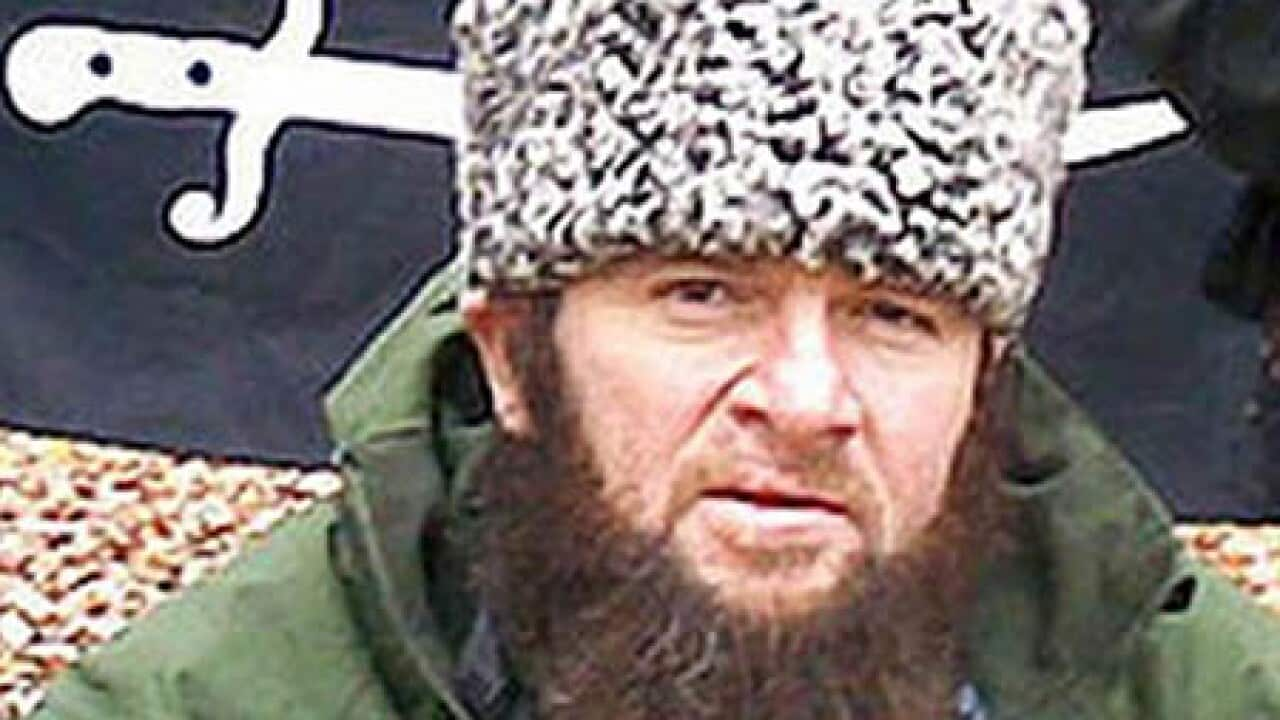A new explosion has hit the Russian Federation as Muscovites held funerals for dozens killed in the metro suicide bombings earlier in the week.
Two people were killed in Russia's southern region of Dagestan overnight when their car, suspected to have been packed with explosives, blew up, Russian news agencies said.
Reports on Thursday evening AEDT said Russian President Medvedev made a surprise visit to the region.
The explosion took place in the Khasavurtsky region in western Dagestan, the Interfax and RIA Novosti news agencies reported, quoting security sources.
"According to preliminary information, the explosive materials that were in the car went off accidentally," Interfax quoted its source as saying.
No further explanation was immediately available. The explosion took place less than a day after 12 people were killed in a double suicide attack in Dagestan that followed the Moscow metro suicide bombings.
Metro bombers could have had Dagestan link
Meanwhile, a Russian paper, the Kommersant daily, says the two women who allegedly staged the Moscow Metro attack were among 30 people recruited by militant leaders to carry out suicide attacks.
The Kommersant daily quoted sources close to the investigation as saying the men and women were largely recruited through the Internet and trained in the troubled North Caucasus region of Chechnya.
The two women who staged the Moscow bombings which killed 39 people on Monday are believed to have taken a bus from the Dagestan town of Kizlyar.
Dead of Metro attack buried
Funerals were to be held at nine cemeteries in Moscow and also in the southern city of Krasnodar as Russia mourned the 39 victims killed when two female suicide bombers blew themselves up on the Moscow metro on Monday, state television said.
Some 16 bodies have also been dispatched to their homes as far afield as the Far East region of Yauktia and the Central Asian state of Tajikistan for burial, the ITAR-TASS news agency quoted municipal officials as saying.
The Emirate of the Caucasus, which is waging an insurgency to boot the Russians from the North Caucasus and impose an Islamic state, claimed the metro attacks in a video message from its leader.
Doku Umarov, who has been the target of several attempts on his life by the the Russian security forces, said he had personally given the order for the metro attacks.
"It is a legitimate act of revenge for the continued assassinations of civilians in the Caucasus," he said in the video posted on the kavkazcenter.com website - frequently used by militants to post messages.
Russia has for years battled Islamist insurgents in the North Caucasus Muslim regions of Dagestan, Chechnya and Ingushetia but Monday's attacks were the first time in six years such violence has spread to the capital.
With a lull in attacks in the capital utterly shattered, the authorities were further jolted Wednesday when 12 people, mainly police, were killed in a double suicide bombing in Russia's southern region of Dagestan.
Two more deaths following explosion
Underlining the instability in Dagestan, two people were killed in its Khasavurtsky district overnight Wednesday to Thursday when their car suspected to have been packed with explosives blew up.
"According to preliminary information, the explosive materials that were in the car went off accidentally," Interfax quoted a security source as saying on Thursday.
Umarov, who uses the nom de guerre Abu Usman and had last month pledged a "holy war" of attacks throughout the country, chillingly warning Russians to expect more strikes in their heartland.
"The attacks on Russian territory will continue in revenge for what the Russian special services are doing in the Caucasus," warned the bearded militant, speaking in an unidentified forest location.
"The inhabitants of Russia cannot just calmly watch on the television what is happening in the Caucasus when they do not react to the crimes committed by the gangs under (Russian Prime Minister Vladimir) Putin."
"This is why the war is coming into your streets."
Umarov called the attacks revenge for a "massacre by Russian invaders of the poorest residents of Chechnya and Ingushetia" on February 11 when they were "picking wild garlic ... to feed their families".
'Twenty rebels' killed in February
Reports at the time quoting the Russian security services said 20 rebels had been killed in special operations on February 11.
The video was the first claim of responsibility for the metro bombings but its authenticity could not be independently confirmed.
The Kommersant daily quoted an investigation source as saying this week that militants had recruited 30 potential suicide bombers in recent months, with 21 still at large after nine already blew themselves up.
Putin said Wednesday's suicide bombing in Dagestan, may have been linked to the bombings on the Moscow metro.
The main evidence in the investigation is the two bombers' severed heads which were recovered by police after the bombings.
Their photographs have been released in the media.
Unconfirmed reports have said the bombers arrived in Moscow from the Caucasus by bus early on Monday accompanied by an unidentified male who is now the subject of police search.

